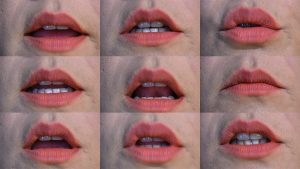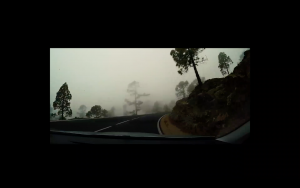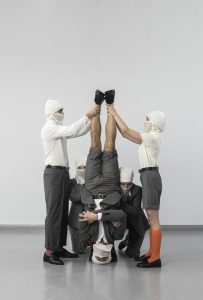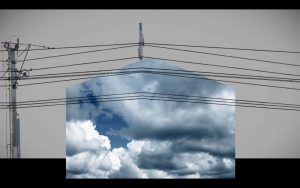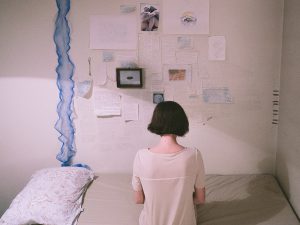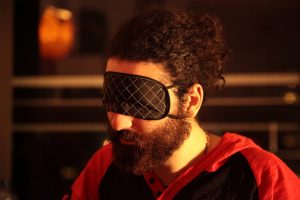SIGNIFICANT NEWS AND URBAN LEGENDS:
SEHER UYSAL
“ECHO CHAMBER” AND “EVEN THE GRAND TURK SENT US HIS PIASTERS”
Art Talks: Seher Uysal & Nergis Abıyeva
31.01.2024
Bilsart is hosting two recent video works by Seher Uysal’s titled “Echo Chamber” and “Even the Grand Turk Sent Us His Piasters” as part of the exhibition series called “Significant News and Urban Legends” between 31 January – 10 February 2024 curated by Nergis Abıyeva.
The exhibition investigates concepts relating to the past such as personal and collective memory, urban legends, oral history and official historiography seen in the light of a Post-truth era where facts cease to be objective or lose their importance. Social media such as Facebook and Twitter which have taken an important role in our lives since the 2010s, have brought an information pollution along with its fluidity and speed of dissemination of information. Today we can see popular discourses taking precedence over objective facts and fact-checking, questioning the source of shared news or information or scanning archives for past events have been diminishing over the years. The aspects of social media that lead to speed and instant reflexes have overshadowed the process of reaching the source of information.
Seher Uysal, a researcher and artist who continues to work between Turkey and Sweden, whose practice I had the opportunity to get to know closely at Daire Sanat’s Open Studio Artist in Residence Program in November 2022, has in recent years been interested in urban legends, personal memories, the gaps between official histories especially based on the relations between countries, minor scale narratives. In her video work titled “Even the Grand Turk Sent Us His Piasters”, she takes her references from an ongoing urban myth between Ireland and Turkey. Urban legends, which are stories that generally circulate from word of mouth and belong to a certain period or place in society, can be real or completely imaginary. More important than the reality of these legends is that they generally reflect the collective consciousness of the society and give us clues about the values, fears, sources of pride, national consciousness and hopes of that society itself. Uysal pursues the legend of a gift of Aid to Ireland which is also mentioned in James Joyce’s book Ulysses. According to the legend, the Ottoman Sultan Abdulmedjid gave financial aid to Ireland in 1847 during the famine that lasted between 1845 and 1852 in Ireland, called the Great Hunger or Potato Famine.
Following the ecology around this myth Uysal traces a document from the Ottoman Archives, a historical investigation by the local historian from Drogheda-Brendan Matthews, a marble sign that was ”hastily” put up on the façade of a hotel in Ireland, a conversation based on questionable facts between two presidents during the flirtation between Turkey and the European Union. It traces a story that extends to conversations referencing a historical period, to a “suspicious” friendly match between Trabzonspor and Drogheda United FC clubs. Rather than fact checking or finding documents, the project examines a series of strange events between two countries brought together by dubious information and political hostility. As such, it can be considered more of an artistic criticism or exploration of historiography. Uysal reveals her position as an artist in this project by vocalizing the results of the research herself.
Another work; a 6-channel video installation titled “Echo Chamber”, is at first glance about age and memory, or “aging memory”. This work, which delves into a past that is extracted from the depths of memory of one particular person, detailed and “fictionalized” each time it is narrated, also depicts the panorama of what had happened in a small village in Trabzon at the brink of the Cold War. Known as the largest “aid” campaign in US history the Marshall Plan was implemented after the World War II, making Turkey one of its “shareholders”. Milk powder, Vita oils, tinned food, in short, the Marshall aid, have leaked into the school memories of the anonymous narrator, whose face we do not see. The Nato base, vaguely visible resurfacing from the depths of her memories, is as unknown as the past itself. The narratives, each consisting of recordings made throughout 2021, are visualized by the films recorded during a research visit by Uysal to the Bahçecik neighborhood and are now presented as a multimedia installation.
Both studies reference Turkey’s international relations with other countries and include manifestations of power, vertical and hierarchical relationships around an “aid” rather than solidarity. Seher Uysal not only brings “historic” narratives back to the agenda, but also opens the door to perspectives on comprehending today’s dynamics through these narratives and myths.
ABOUT SEHER UYSAL
Seher Uysal (b.1983) is a visual artist and researcher based in Istanbul. Inquiries into the everyday often shape her artistic practice and her works are primarily artistic research based reflections on spatial, historical or cultural conditions. She is interested in the exploration of manifold perspectives and understandings of phenomenon and often accesses complex ideas through simple means such as drawing, the accumulation of lists and inventories and the framing and combination of images and artifacts.More recently she has been developing projects based around the collection, interpretation and construction of multiple narratives and memory and is collaborating with the Turkish film maker and screen writer Caner Yalçın.
Uysal’s practice includes both the production of art works and writing academic texts together with her participation and interests in the discourses on Turkish Art education and alternative teaching practices. In 2014 she acquired a Ph.D in Fine Art from Kocaeli University and worked there as a lecturer in 2012 & 2013. She is also part of the teaching team at the summer school of Nesin Art Village where she gives classes on Visual Culture and Storytelling which include a multidisciplinary approach.She is also one of the initiators of the project Exchanges in Art Education which organizes talks and seminars and collects Turkish and international perspectives on Artistic educational practices.
Recently Seher Uysal has presented and exhibited her work at Kare Art Gallery in Istanbul, at Botkyrka in Stockholm, at The Akbank Sanat Beyoğlu in Istanbul and at the Pitzer College Art Galleries in Los Angeles.




